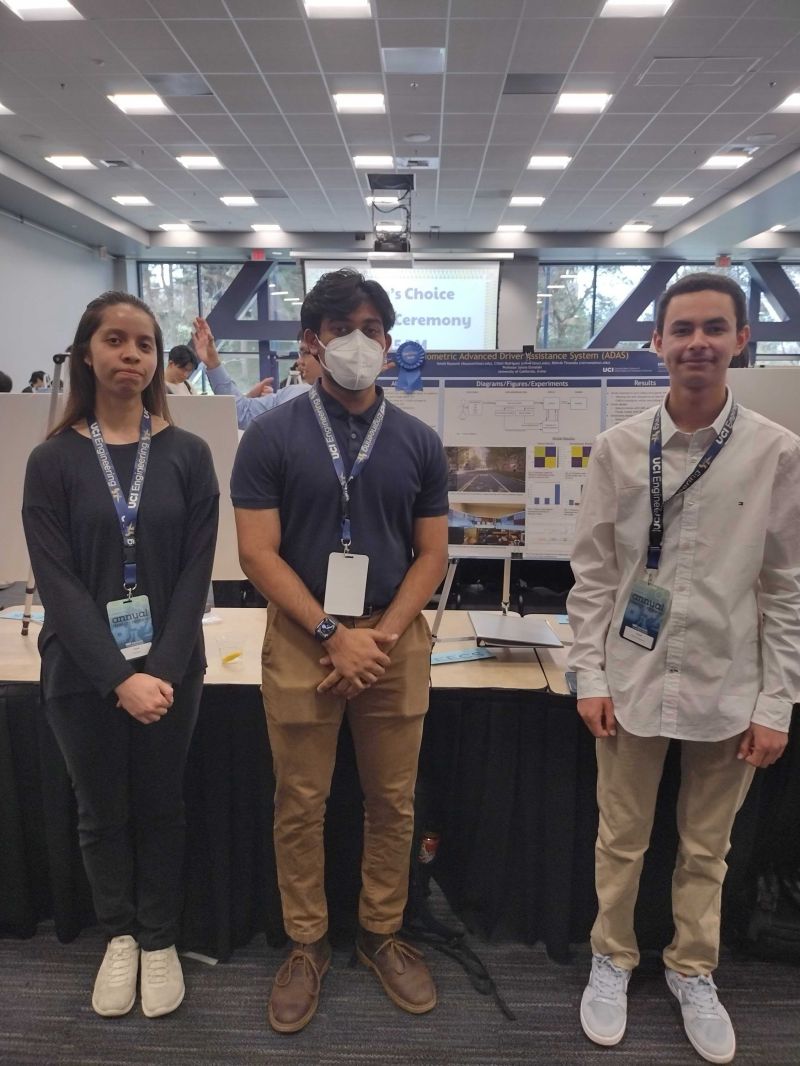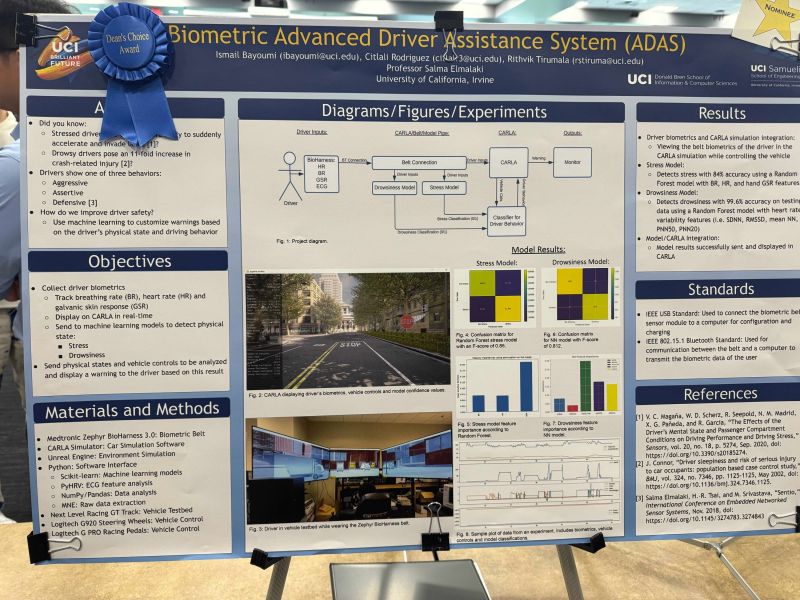Congratulations to Ismail, Citlali, and Rithvik.
Watch their cool video demonstration in our lab: https://photos.app.goo.gl/Z3tp3xweQ7wM1PkT7


Congratulations to Ismail, Citlali, and Rithvik.
Watch their cool video demonstration in our lab: https://photos.app.goo.gl/Z3tp3xweQ7wM1PkT7


Yixin Zhang (former undergrad researcher) and Tyler Zhao have a new paper accepted in DESTION’24 also part of the CPS-IoT’24 week.
The paper entitled “Towards Fairness-aware Crowd Management System and Surge Prevention in Smart Cities,” discusses crowd management methodologies that focus on fairness in terms of the disparity of evacuation time between healthy and vulnerable individuals. It also suggests approaches to manage surge prevention in large gatherings.
https://www.isis.vanderbilt.edu/events/6th-workshop-design-automation-cps-and-iot-destion-2024
Our two papers on fairness and equity in human-in-the-loop systems with sequential decision-making are accepted to appear at the 15th ACM/IEEE International Conference on Cyber-Physical Systems (ICCPS) as part of the CPS-IoT’24 week. CPS-IoT Week is the premier event on Cyber-Physical Systems and the internet-of-things.
Check out the arxiv versions of the two papers:
The first paper, entitled “FAIRO: Fairness-aware Adaptation in Sequential-Decision Making for Human-in-the-Loop Systems” by Tyler Zhao and Mojtaba Taherisadr
The second paper, entitled “FinA: Fairness of Adverse Effects in Decision-Making of Human-Cyber-Physical-System” by Tyler Zhao
Salma’s research entitled, “CAREER: Psychology-aware Human-in-the-Loop Cyber-Physical-System (HCPS): Methodologies, Algorithms, and Deployment” won the NSF CPS CAREER award.
The seamless interaction between humans and smart technologies represents a significant opportunity, but it also presents a daunting set of challenges. Understanding the intricate interactions between CPS and humans is essential for shaping the ultimate societal outcomes of future CPS technologies, particularly within the realm of Human-Cyber-Physical Systems (HCPS). In this context, decisions made by CPS can yield disparate impacts on individuals within settings like smart cities, traffic systems, and crowd management, constituting what we term “Multi-Human-CPS (MHCPS).” In particular, MHCPS encapsulates a multitude of individuals with conflicting preferences and diverse perceptions coexisting within the same environment, influenced by both social-psychological dynamics and the decision-making process of CPS. MHCPS consists of two intertwined and coupled dynamics, physical and social psychology, the latter encapsulating the ever-changing patterns of social interactions that mold individuals’ thoughts, feelings, and behaviors along the continuum of altruistic, prosocial, neutral, or antisocial behavior. The research underscores the impact of social-psychological states on overall system performance, where increased prosocial behavior correlates with heightened system compliance and acceptance. This research aims to design CPS decision-making algorithms that understand both the physical system and the social-psychological nature of human interactions with these systems. Such psychology-aware decision-making algorithms will enable harmonious interactions, foster equity, and optimize overall performance.
This NSF CAREER project aims to bridge a gap in current CPS engineering practices by incorporating social-psychological dynamics and societal tensions into engineering solutions to address current and future challenges of societal scale CPS. This research introduces new algorithms, models, and tools that integrate these dynamics into engineering solutions, significantly expanding the research toolbox available to researchers and practitioners. The research entails (i) developing novel human modeling techniques to capture social psychological dynamics in Multi-Human CPS (MHCPS) applications, (ii) formalizing objectives for CPS decision-making to enhance social dynamics in MHCPS, (iii) designing neurosymbolic sequential decision-making algorithms that account for both physical and social dynamics and constraints in MHCPS, (iv) creating causality-aware preference learning algorithms to capture tradeoffs and social tensions in MHCPS, (v) deploying decision-making algorithms in real-life applications, considering deployment/resource constraints and their impact on the resulting system, and (vi) implementing systematic software frameworks to facilitate the real-life implementation of MHCPS. This research can influence the direction of engineering research significantly, advancing the understanding and development of CPS technologies with enhanced social considerations.
Salma participated in the workshop on IoT for NSF S&CC in UW, Seattle. The workshop brings together researchers and practitioners in the area of IoT to stimulate discussions exploring challenges, opportunities, and nuances in IoT for research and education.
Engineering Student Council (esc) in the Henry Samueli School of Engineering has awarded Prof. Elmalaki the Professor of the Year for the Electrical Engineering and Computer Science Department (EECS). This award is a student-nominated, voted, and organized award.
Our new work on adaptive privacy-aware RL that captures human variability in sequential-decision making systems has been accepted to appear in IoTDI’23. Congratulations, Mojtaba and Stelios!